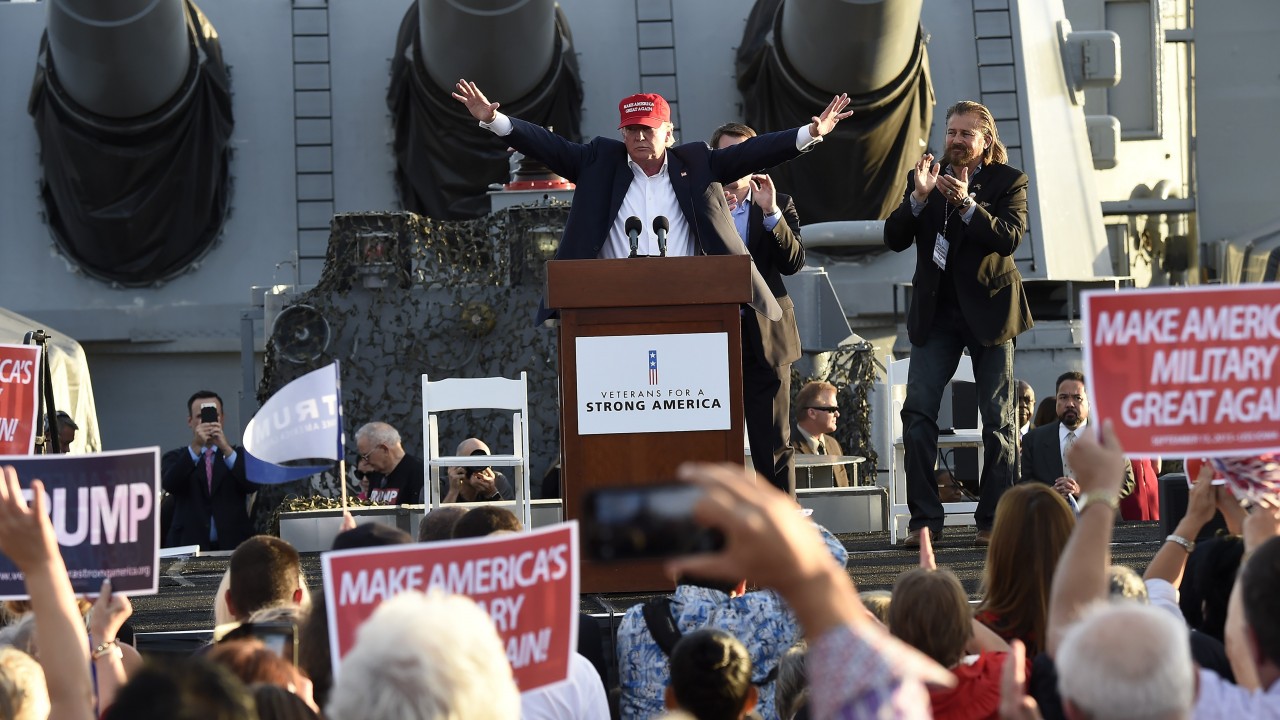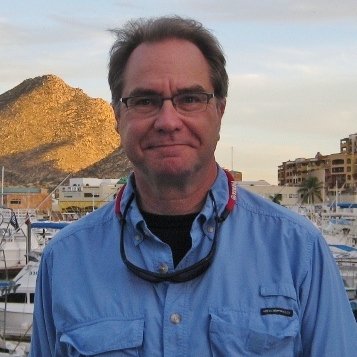
Donald Trump, appearing here in California, may have a hard time getting his supporters to the polls in the state's primary, (Photo: Robyn Beck/AFP/Getty Images)
Though California has long been a grand prize of presidential campaigns — “the big enchilada,” as Richard Nixon put it — in most elections, the state’s June primary has kept its voters from having much say in picking the presidential nominees.
But in a year when Golden State voters could well determine whether Donald Trump gets enough delegates to win the Republican presidential nomination, party officials are limiting who can participate in their presidential primary. In doing so, they appear to be operating in express opposition to the will of California voters.
The brewing controversy has implications not just for the Republican nomination fight but for a national effort to reform what many critics regard as an exclusionary primary process that depresses voter participation and encourages hyper-partisanship.
California has been in the vanguard of the reform effort. Under Proposition 14, approved by state voters in 2010, all candidates, regardless of party, run in the same primary in which all voters, regardless of party, get to cast ballots. The top two vote-getters advance to the general election— a move with the stated aim of encouraging the election of more moderate, less extreme candidates.
— Richard Hasen
The system covers elections for most offices, including US Senate, Congress, governor and state legislature. But not presidential primaries. The rules for those contests are left up to the parties, and this year California’s Democrats and Republicans have decided to play by different sets of rules. Those differences mean more than twice as many Californians, 11.5 million, will be eligible to vote in the Democratic primary as in the Republican primary, 4.8 million.
Many registered voters may not realize they can’t cast the ballot they want until it is too late.
“Independent voters, some of them are going to face a rude awakening when they’re used to being able to vote for whoever they want but cannot do that for the presidential primary,” said Richard Hasen, elections expert at the University of California-Irvine law school. “I think people are going to be complaining, ‘What do you mean I don’t get this ballot?'”
The state Republican Party allows only registered Republicans to cast ballots for the party’s presidential nomination, while the Democratic Party allows independent voters as well as registered Democrats to cast ballots in the race between Hillary Clinton and Bernie Sanders. As in other states, each party selects how its delegates are awarded based on the voting.
Voters who want to vote in the GOP primary have until May 23 to register as Republican or change party affiliation to Republican in order to receive a ballot. They can do so online.
The differing rules are confusing even for experts, notes Jack Pitney, political science professor at Claremont McKenna College: “Even students in my parties class, who are a pretty sophisticated bunch, are surprised when I explain the law to them. It would clarify things for voters if the rules were consistent.”
Adding to the confusion: Some voters who think they are registered independent, and therefore eligible to make a choice between Clinton and Sanders, actually aren’t.
A Los Angeles Times poll of a sample of the nearly half a million Californians registered in the American Independent Party, a minor party started by then-Alabama Gov. George Wallace in his 1968 run for the presidency, found three out of four thought they were registered as independents, not members of a party founded by the infamous segregationist.
Among those who said they were fooled were celebrities Sugar Ray Leonard, Demi Moore and Emma Stone. Unless they change their registration, they will be able to cast a primary ballot only for an American Independent Party nominee.
A bipartisan group called the Independent Voter Project, which was instrumental in successfully pushing the top-two primary system ballot initiative, petitioned the state legislature and Secretary of State Alex Padilla in March to provide an additional nonpartisan presidential ballot so that registered voters, regardless of party affiliation, could vote for the candidate of their choice. More than 18,000 people signed the online petition.
A proposed resolution ordering the extra ballot failed in a committee of the state Assembly in April. Padilla says he has neither authority nor resources to issue a nonpartisan presidential primary ballot.
“To be honest we have our hands full in preparation for the June primary,” Padilla said in a telephone interview.
Democrats have 43 percent of California’s registered voters, or 7.4 million, according to figures from the secretary of state’s office. The party exercised its right under state law to open the primary to another 4.1 million voters – those registered as having no party preference. Independents are the fastest growing group of voters in California. Since 2008, their numbers have increased by more than 1 million.
The once dominant Republican party has seen its registration decline to 4.8 million. The decision to hold a closed presidential primary means that fewer than 28 percent of the state’s 17.3 million registered voters are eligible to make the potentially momentous decision about Trump. Pitney theorizes it could hurt the insurgent by limiting his ability to draw new voters into the process. “In other states Trump has tended to do better among people who were not registered Republicans,” he said.
State Sen. Anthony Cannella, a Republican from Ceres in the Central Valley, said in a statement released by the Independent Voter Project that “the state shouldn’t be in the business of disenfranchising voters who’ve chosen to not belong to a party from voicing their opinion in the presidential primary.”
California Republican Party Chairman Jim Brulte, a former state senator, declined to be interviewed for this article. But the party’s communications director, Kaitlyn MacGregor, said the closed primary was a decision of the party’s state convention delegates.
Republicans would be smart to open up the process, he said, as the party is shrinking and holds no statewide elective offices, and it needs any voters it can attract.
“If you reach out, they might decide to stick around,” said Dan Schnur, director of the Jesse M. Unruh Institute of Politics at the University of Southern California and a supporter of the Independent Voter Project.
A former Republican strategist who left the party in 2011 and ran unsuccessfully for secretary of state as an independent in 2014, Schnur said that the GOP has the right to exclude nonmembers from the primary but questions why taxpayers should have to foot the bill.
“They currently rely on taxpayer dollars to hold their primary,” Schnur said. “It seems to me that if you want to exclude people who aren’t members of your party from participating in the nominating process, then you should probably hold a caucus instead.”
Elections officials are bracing for what could be a big turnout of voters. Padilla recently wrote to Gov. Jerry Brown and the legislature asking for additional resources and warning “California could see a major surge in voter turnout.”
Critics say it could get messy.
“You’re going to have this overwhelming turnout in California because our primary actually matters,” said Chad Peace, a San Diego lawyer for the Independent Voter Project. “The registrars are going to have to face angry voters… Voters think they can vote for anybody. Then you have to explain to them the presidential primary is different.’’




